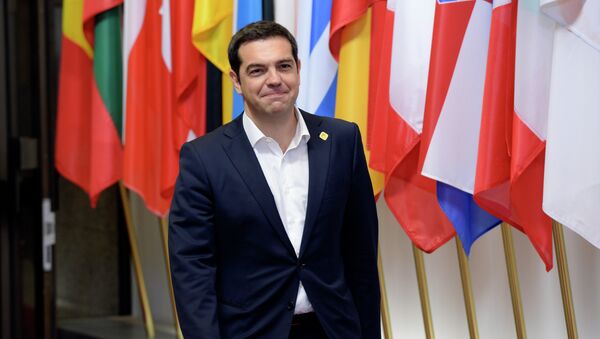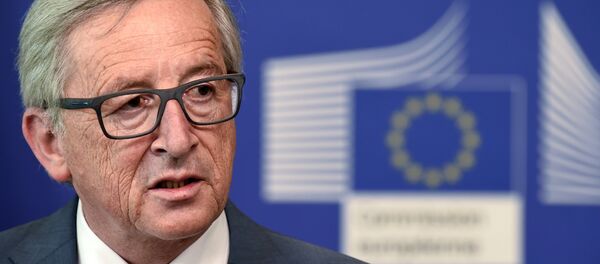“We need an agreement that will show that ‘there is light at the end of the tunnel,’” Tsipras said during a European Parliament session in Strasbourg.
Greece's actions are not aimed at clashing with Europe, but at saving the country and the Eurozone, Tsipras said.
"We don't want to clash with Europe, but we want to change the situation in the country, the way of thinking that is drowning Greece and the Eurozone with it," the Greek leader said.
"Europe is at the breaking point, the so-called Greek crisis is actually a European weakness. We must find the final solution to the debt crisis which feeds on itself. This is a European, not solely a Greek, issue. And, as a European problem, it demands a European solution," Tsipras said.
Greece's recent proposal to the country's international lenders to settle the debt issue is aimed at saving European and Greek banks, not being a burden for the European Union's taxpayers, the Greek prime minister said.
"I want it to be clear- the Greek government's proposal to finance its liabilities and debt restructuring will not be a new burden for European taxpayers. The money given to Greece, let's be frank, never reached the Greek people, it was to rescue Greek and European banks."
Tsipras told European lawmakers that the public vote gave a "mandate to redouble our effort in order to get a socially just and economically sustainable solution to the Greek problem without repeating the mistakes of the past."
The Greek leader noted that the unpopular economic reforms in the Hellenic Republic "condemned the Greek economy to a period of never-ending impasse of austerity, which trapped our economy in a vicious recessionary circle."
He added that Athens is drafting a detailed offer, which it will send to its lenders within days.
European Council President Donald Tusk’s statement at the conclusion of Tuesday’s emergency Eurozone summit gave Tsipras until Sunday to come up with a mutually acceptable proposal.
The referendum was preceded by several rounds of talks, which failed to end in an agreement between the sides, and Greece's failure to make a June loan repayment to the International Monetary fund (IMF) before the expiry of the previous bailout package.
Greece's total debt to the IMF, the European Central Bank and some Eurozone nations stands at approximately $270 billion.





